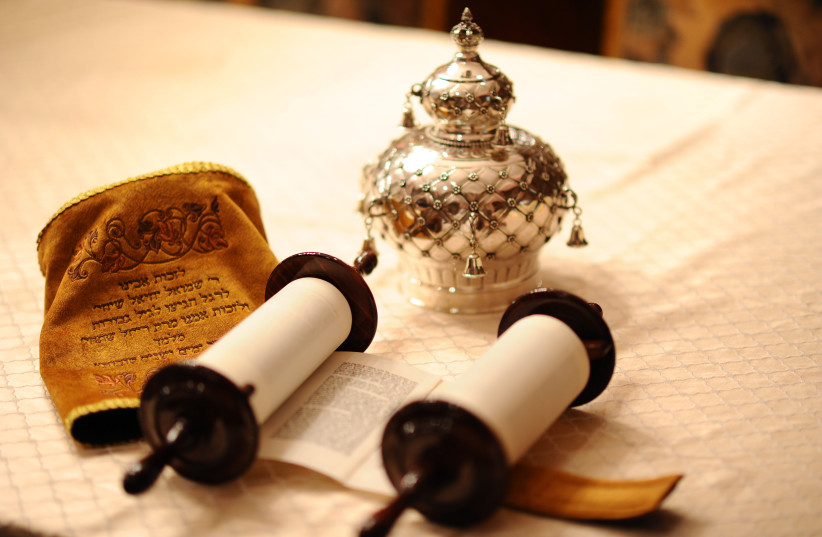Parashat Hukat begins with the laws of the para aduma – red heifer – which detail how, during the time the Temple stood, a person could purify himself. After this, we read the story of mei meriva – the waters of contention – when Moses and Aaron hit the stone instead of speaking to it and, as a result, were punished with not being able to enter the Land of Israel. Aaron’s death is described right afterward.
After we read of Aaron’s death, the Torah describes the nation’s reaction to the bad news:
“The whole congregation saw that Aaron had expired, and the entire house of Israel wept for Aaron for 30 days” (Numbers 20:29).
“The whole congregation saw that Aaron had expired, and the entire house of Israel wept for Aaron for 30 days.”
Numbers 20:29
The words “the entire house of Israel” emphasize that this was not something experienced by a specific group. The entire nation was swept up by grief and cried over Aaron’s death.
Midrashic sages noticed these words and explained the intensity of the grief with an explanation that can teach us all about leadership, love of others and seeing the good.

The peacemaker
“What is said about Aaron is greater than what is said about Moses. For Moses, only the men cried. But for Aaron – both the men and the women, for Aaron had pursued peace; he promoted love between disputing parties and between man and wife and between a woman and her friend. And what would Aaron do? When two people quarreled Aaron went and sat down with one of them and said to him, ‘My son, know that your friend has said, ‘I am ashamed before him because I have sinned against him.’
“Aaron would sit with him until he had dispelled the ill feeling from his heart. Then Aaron would go and sit with the other one and say to him, ‘Know that your friend is saying, ‘Woe is to me! How shall I raise my eyes and look at my friend? I am ashamed before him because I have sinned against him.’
“Aaron would sit with him until he had dispelled the ill feeling from his heart. When the two friends later met, they embraced and kissed each other. Such was Aaron’s life. And his virtue. When he would hear that there was a quarrel between a man and his wife, he would not leave them until they made peace. Therefore, both men and women cried for Aaron” (Midrash Aggadah for Parashat Hukat).
This description of a leader, of a high priest, who hears of a quarrel between two friends and tries to make peace between them and restore the love and friendship that had been shaken is indeed an amazing and moving description. We all read such a description and think – I wish there were more people like that in the world. Our lives would all look different. There is so much suffering as a result of polarization, tension, quarrels. How much better our lives would be if there were more incredible people like Aaron who set themselves the goal of restoring peace between friends and couples.
And yet, there is something odd in this story. What were Aaron’s tactics when restoring peace? Let us read that part again: “When two people quarreled, Aaron went and sat down with one of them and said to him, ‘My son, know that your friend has said, ‘I am ashamed before him because I have sinned against him.’ Aaron would sit with him until he had dispelled the ill feeling from his heart. Then Aaron would go and sit with the other one and say to him, ‘Know that your friend is saying, ‘Woe is to me! How shall I raise my eyes and look at my friend? I am ashamed before him because I have sinned against him.’ Aaron would sit with him until he had dispelled the ill feeling from his heart.
Would Aaron lie to succeed in the sacred mission of restoring peace? It seems that he did. It is permissible to change the truth somewhat to bring about peace. But it seems it wasn’t really a lie.
Aaron’s motivation to restore peace stemmed from his great faith in people. Why do friends quarrel? Why is there tension between a couple? What is the reason for a social rift? Aaron believed that people are basically good-hearted. What leads them to quarrel are the external fears, suspicions, insults and anger.
But deep inside, people want peace. They want friendship and are prepared to invest in it. The imaginary story that Aaron would tell expressed the great truth he believed: People want to live in peace with others.
This is the secret that Aaron would reveal to people and to couples. He would reveal to them that the other, despite concerns and pain, is interested in peace. True, it is not easy, he needs help, but he really wants to live peacefully with you.
This is the secret we all must learn. The person we’re quarreling with isn’t bad. Even if he’s angry, afraid or even threatening, he is a good person. If we just believe in this goodness, it will reveal itself and change reality. ■
The writer is rabbi of the Western Wall and Holy Sites.
